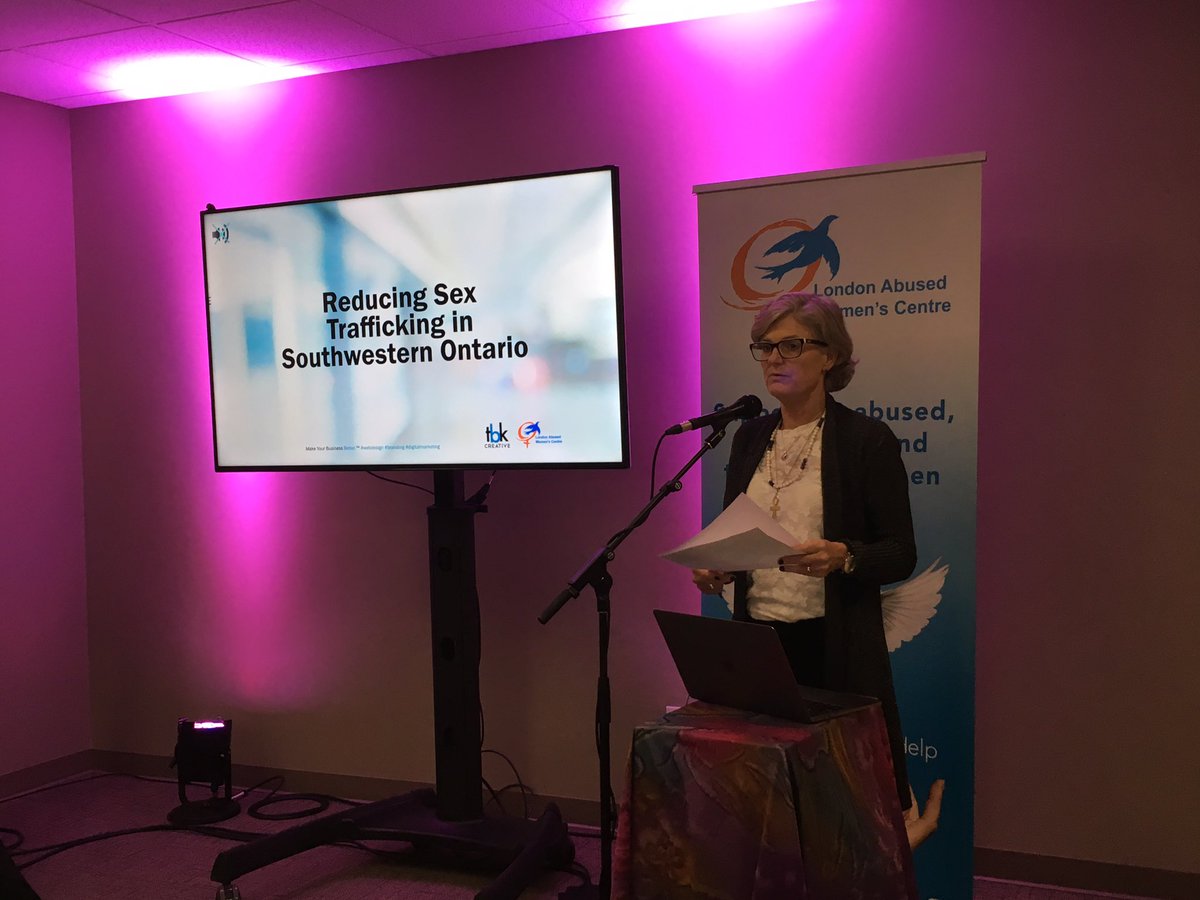A months-long digital ad campaign by the London Abused Women’s Centre (LAWC) that was aimed at combating sex trafficking in the London area and along the Highway 401 corridor was an overwhelming success, the agency said on Friday.

The campaign, launched on Jan. 18, targeted sex purchasers and trafficking victims through ads on social media platforms, including Facebook and Instagram, as well as ads posted alongside Google search results.
By the time the campaign finished on May 18, it had garnered 10.5 million impressions and 65,000 clicks, LAWC said, adding that the organization also received 187 direct phone calls from the campaign.
The ad campaign was implemented by London marketing firm tbk Creative, which also facilitated a similar campaign that LAWC spearheaded last year.
That campaign, which targeted Facebook and Google users within a specific distance of London, registered nearly one million impressions, a metric used to measure the number of times an ad is on the screen of the targeted audience.
This time around, however, the campaign went wider, targeting people in 10 major communities stretching along Highway 401 from Windsor to Toronto, a corridor known for sex trafficking. The agency also received $103,000 in funding from the Department of Justice.
For the campaign, ads targeting men advertised the consequences of buying sex, while ads targeting women communicated how those in abusive, unsafe or exploitative relationships could find help leaving. This year’s campaign also saw ads targeting parents, detailing signs of exploitation and linking to further resources and information.
In a statement, Megan Walker, LAWC’s executive director, said women and girls need to know they aren’t alone and that woman-centered services exist to help them escape harm.
“Women and girls are being lured by pimps into the violent and dangerous sex trade from high schools, universities, colleges, bars and their workplaces,” Walker said, noting that two-thirds of trafficking in Canada originates in Ontario.
“Men who choose to purchase sexual services need to understand that it is their demand for prostitution that fuels sex trafficking.”







Comments